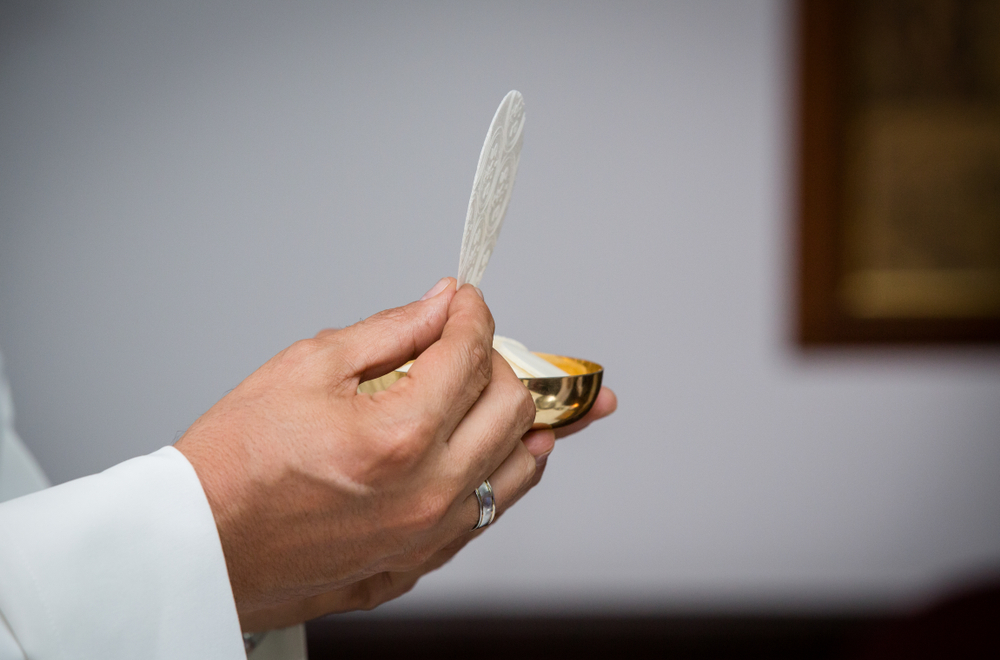Have you ever heard someone say: “I have been a lector (or an Extraordinary Minister of Holy Communion, usher, musician, or sacristan) for ten, twenty, thirty years. Why would I need to attend a renewal session for my ministry? I’ve been doing it so long, I know everything I need to know to do my job.”
Think about that comment for a moment.
Would it be wise for a teacher, doctor, engineer, government official, artist or parent to think in those same terms?
We are all always in a state of continual growth and change in every area of our lives. We are required to regularly renew our driver’s license; we are asked annually to participate in some form of professional development; we are required to renew professional licenses with some regularity.
Why then would our participation in our religious ritual not require renewal and growth?
The service we offer in the liturgy may seem to be of a simple nature, therefore, we often assume that it does not demand much from us. Yet every ministry, whatever form it takes, is about a personal spiritual journey, with community in Christ. It is about relationships with one another and with God.
Our ministerial role in the liturgy is a reflection of the Eucharistic spirituality we live every day of our lives.
It is not simply a function or task we perform in the ritual. It is a path we follow in our lives. It’s about keeping our eye, our ear, our heart focused on God. The liturgy and our chosen ministry help us maintain our spiritual priorities.
Just as our physical life is always changing, so, too, does our spiritual and liturgical life. The liturgy is never static, and always asks us to remember who we are.
As church, we are stewards of a story, a message, a presence that is continually unfolding. We are the means by which the church, through the power of the Holy Spirit and on behalf of the world, keeps the memory, message and presence of Jesus Christ alive in the world.
Our participation in the liturgy regularly reminds us that the presence of Christ continues in and through us.
Ongoing liturgical ministry formation and renewal sessions offer us the opportunity to examine what we may have forgotten, not in terms of tasks, but in terms of our motivation — why we do what we do.
It’s not about the receiving of information. It’s about reflection upon and continual formation in the life of Jesus Christ through our participation in this ritual prayer we call the Mass.
The Archdiocese of Los Angeles (ADLA) Office for Worship’s “Guidelines for Lectors” states:
“Those who are presently lectors should periodically participate in enrichment programs, such as lector enrichment classes offered by the Office for Worship, bible study courses, Bible Institute and other workshops on Scripture and/or proclamation techniques” (No. 7).
The ADLA Office for Worship’s “Guidelines for Extraordinary Ministers of Holy Communion” also makes this recommendation:
“At least once a year, each community should arrange some program or retreat to renew the faith, prayer and commitment of the present ministers. These meetings/retreats could also include discussions of issues that have arisen in the course of their ministry” (No. 8).
Both of these guidelines, as well as other resources, can be found at the ADLA Office for Worship website: www.laliturgy.org.
Here are some ways every parish can provide ongoing formation for their liturgical ministers:
1. Gather liturgical ministers from every language community in your parish for a time of reflection, renewal and community building in preparation for Advent/Christmas, and again right before Lent/Easter.
2. Provide a weekly one-hour scripture reflection at which ministers review and discuss the readings for the upcoming Sunday liturgy. Lectors assigned for each week’s readings could remain after the reflection and rehearse their readings together.
3. Encourage liturgical ministers to read current writings on their ministry. Provide booklets on the subjects, such as Liturgy Training Publications Liturgical Ministry Series Guides (ltp.org)
4. At least once a year, the ADLA Office for Worship (OFW) provides basic formation and renewal for lectors and extraordinary ministers of Holy Communion in each pastoral region. Please encourage your ministers, established and new, to attend. The OFW can also provide other liturgical ministry formation upon request.
5. Provide the technology that would enable parish liturgical ministry groups to participate in the ADLA Office for Worship webinars, or the Liturgy Training Publications Virtual Workshops (ltp.org).
Remember, annual renewal of liturgical ministry is not a matter of the receiving of information. It is a process of continual revitalization and growth of our interior spiritual preparation and participation in the liturgy and in our ministry.

